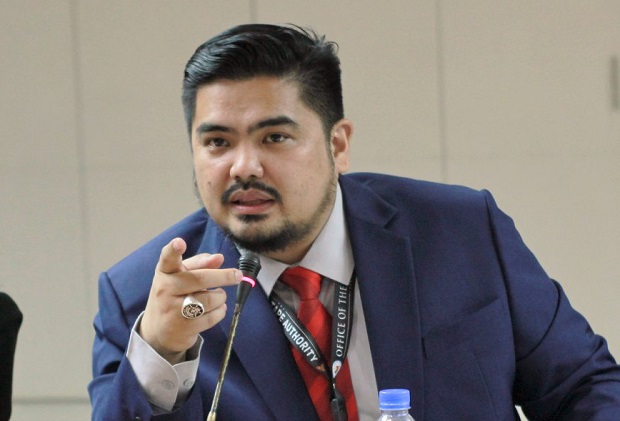The Anti-Red Tape Authority (ARTA) has identified the ten government agencies with the highest number of complaints received from the public as of June 10 this year.

ARTA deputy director general Eduardo Bringas said during the “Kapihan sa ARTA” on Thursday, June 17, that the Bureau of Internal Revenue (BIR) has the highest number of complaints at 92.
It is followed by the Land Transportation Franchising and Regulatory Board (LTFRB) with 88 complaints, Land Registration Authority with 79 complaints, Social Security System with 70 complaints, and the Department of Environment and Natural Resources with 48 complaints.
The ARTA also received 42 complaints against the Bureau of Customs, 41 complaints against the Food and Drug Administration (FDA), 30 complaints against the Home Development Mutual Fund, 24 complaints against the Department of Agrarian Reform, and 23 complaints against the Department of Public Works and Highways.
“But we cannot say that all of these are red tape-driven, because we also have to consider the number of clients they are addressing,” Bringas said in Filipino.
He added ARTA likewise received complaints that are not within its mandate, which the office redirects to the concerned agencies.
Complaints against other government agencies reached 391, while a total of 199 complaints were filed against local government units (LGUs), he said.
As of June 10, ARTA received a total of 1,127 complaints against national government agencies (NGAs) and LGUs.
Bringas also said the ARTA has filed cases against erring NGAs and LGUs at the Civil Service Commission, Office of the Ombudsman, and in the regular courts.
ARTA has filed 20 cases against LTFRB, FDA, Department of Energy-Renewable Energy Management Bureau, Registry of Deeds, and Land Transportation Office, and a total of 11 cases against the LGUs of Caloocan, Parañaque, San Nicolas in Batangas, Angeles in Pampanga, Marilao in Bulacan, Province of Camarines Norte, and Office of the Building Official of Taguig City.
ARTA director general Jeremiah Belgica has reminded NGAs and LGUs to adhere to the Republic Act 11032, also known as the Ease of Doing Business and Efficient Government Service Delivery Act (EODB) of 2018, or the EODB law, and its implementing rules and regulations (IRR).
Under the EODB law, all NGAs and LGUs should follow the ‘3-7-20 rule’ in transacting with the public, which means that they should process simple transactions within three working days; seven working days for complex transactions; and 20 days for highly technical transactions.
Applications with complete requirements but exceeded the prescribed number of days of the transaction shall be deemed approved.
The ARTA will be issuing a declaration of completeness upon complaint and due investigation and verification.
Since 2019, a total of 8,510 were granted automatic approval and/or renewal of permits and licenses.
Meanwhile, ARTA said that out of 1,600 LGUs in the country, 580 cities and municipalities have met the deadline of establishing the electronic Business One-Stop Shop (e-BOSS).
Belgica said the 580 LGUs are fully connected to the Integrated Business Permits and Licensing System (IBPLS).
The IBPLS was created by the Department of Information and Communications Technology (DICT) to help LGUs streamline and automate their transactions with the public, and is offered for free to help them put up their e-BOSS.
Under the Ease of Doing Business and Efficient Delivery of Government Service Act, LGUs have to establish their BOSS, while Joint Memorandum Circular 01-2021 orders LGUs to automate their BOSS on or before June 17, 2021.
To make transactions with the government easier, the e-BOSS shall accept electronic submission of application; issue electronic tax bill or order of payment; accept online payment; release electronic version of permits, licenses, and clearances; and provide gateway facility linked to courier service where applicant prefers hard copy of the documents.
But Belgica said there are other LGUs that have already automated their services using other software and are not yet connected with the IBPLS.
“We got (a) report from DILG (Department of the Interior and Local Government) that around 94 percent (of LGUs) have started automation,” he said in Filipino. “But what we want in ARTA, and what the law is saying, it (transaction) has to be end-to-end.”
The ARTA chief added they will continue to assist those LGUs that are not yet onboard the IBPLS, but bigger LGUs should accelerate the automation as they deal more with businesses transacting to get permits and licenses.
Belgica acknowledged there are difficulties for some LGUs to streamline and automate their services like accepting online payments.
However, he said the agency will not allow the non-compliance of barangay officials that still process barangay permits at their level even though the law already directs LGUs to process barangay permits and collect taxes and fees for barangays within their jurisdiction through the BOSS.
“All the barangays that until now have not integrated (the barangay permits with the BOSS or e-BOSS), ARTA will write to them. We will also ask the mayors why the barangays are not yet integrated,” Belgica said.
He reminded public offices not to be a burden for the businesses and transacting public by complying with the Ease of Doing Business and Efficient Government Service Delivery Act. — Kris Crismundo (PNA)




